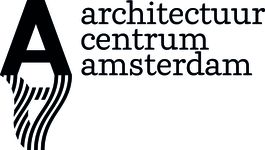In Datapolis we explore the physical and spatial aspect of data, its effect on the society and environment, and its relevance to architectural research and design. We investigate different areas where data and digitalization require critical assessment: from automated landscapes of factories and distribution centers to non-human architecture of data-centers and IXPs; From the effect and footprint of data on the earth to climate monitoring and the formation of global institutions; From the ownership system, political mapping and legal complexity and ambiguity of data to the appearance of digital identities; And from the manipulation of the body to the transformation of the healthcare system and the typology of hospitals; from the changing condition of work and labor to the [re]integration of logistics systems into the city.
Paul Cournet is an architect at OMA*AMO and a teacher at TU Delft. After studying architecture in Bordeaux and Paris (France), Paul joined OMA in 2010. At OMA, Paul has been working on several projects now built or currently under construction. Paul also works within AMO, the think-tank branch, and the research-based entity of OMA. Projects Paul worked on for AMO include exhibitions, research programs, strategies for brands, publications, and set design. Paul is also teaching at TU Delft where he is currently leading the research and design studio Datapolis. Paul has been a visiting teacher and lecturer in several universities across Europe. His work has been published in several international books and magazines.
Negar Sanaan Bensi is an architect, educator, and researcher. She is a lecturer at TU Delft. She holds a Ph.D. in History and Theory of architecture from TU Delft and she is a UKNA fellow. She received an honorable mention in the National Archiprix 2011 in the Netherlands for her graduation project. Her research focuses on the relation between architecture and territory, infrastructure, and inhabitation, specifically in the context of the Iranian Plateau and Middle East. She is part of the editorial board of the Footprint Journal and an editor of the Issue of Footprint #23: The Architecture of Logistics. Her recent publication is “The Qanat System: A Reflection on the Heritage of the Extraction of Hidden Waters” in Adaptive Strategies for Water Heritage edited by Carola Hein.
Federica Longoni is an architecture student at TU Delft Faculty of Architecture and the Built Environment. Since March 2020 she became the Student Assistant for the chair of Complex Projects for the course of Datapolis and Dutch Change. She attained her bachelor’s degree at Politecnico of Milan in 2018, after an exchange program at KEA – Københavns Erhvervsakademi in Copenhagen. Her work experience includes practicing as a Junior Architect at BIG – Bjarke Ingels Group in Copenhagen and as an intern at 02Arch in Milan. Her research interests include the investigation of the relationship between architecture, data, and technology. On this theme, in February 2019 she gained a scholarship to take part in the Norman Foster Foundation Digital X Workshop in Madrid.
Filip Romaniuk is an architect and a coder. He obtained his master’s degree in architecture from the Delft University of Technology. He is a co-founder of any Rama, a polish collective that brings together architects, urban planners, sociologists, programmers, artists, and UX designers. Currently, he lives and works in Spain. He explores the crossovers of architecture, geoinformatics, software engineering, and data science.










